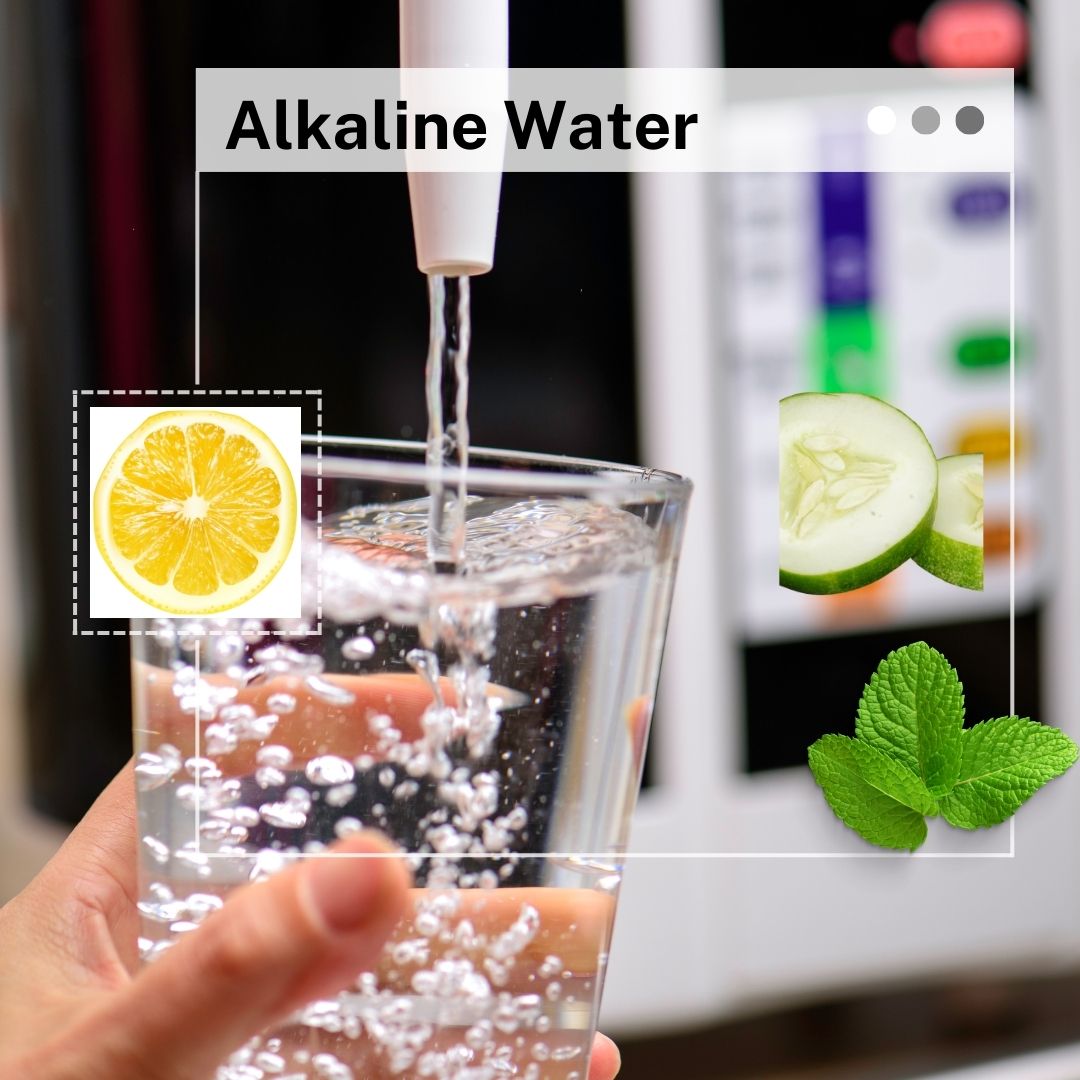What Are The Benefits Of Water With Lemon – 9 Amazing Benefits Of Lemon Water
What Are The Benefits Of Water With Lemon? In a nutshell, lemon-infused water is a refreshing elixir that can work wonders for your health. Its advantages extend from enhancing digestion and hydration to bolstering your immune system and assisting in weight management.
Imagine starting your day with a glass of pure vitality – a zesty concoction that not only wakes up your senses but also does your body a world of good. Lemon water, the simple amalgamation of fresh lemon juice and water brings an array of benefits to the table.
In this article, we’ll dive deeper into the world of lemon-infused water and explore the science behind its benefits. From detoxification to skin health and weight management, we’ll cover it all. Let’s get to what are the benefits of water with lemon.
What Are The Benefits Of Water With Lemon
Lemon water is a popular beverage known for its potential health benefits. While some of these benefits may not be supported by extensive scientific research, many can be attributed to the various nutritional components in lemons.
Below are some of the potential benefits of water with lemon, along with explanations and references where available:
1. Rich Source of Vitamin C
Lemons are a fantastic source of vitamin C, a powerful antioxidant that supports the immune system and helps protect cells from oxidative stress. A 2017 study highlights the importance of vitamin C in maintaining immune health and reducing the duration and severity of colds.
2. Aids Digestion
Lemon water may aid digestion by stimulating the production of stomach acid and bile. The citric acid in lemons is thought to enhance digestion. However, it’s essential to note that if you have acid reflux or citrus allergies, lemon water might not be suitable.
3. Hydration
Staying adequately hydrated is crucial for overall health. Lemon water can make plain water more appealing, encouraging people to drink more and maintain proper hydration levels.
Proper hydration is linked to various health benefits, including kidney function and improved skin health.
4. Weight Management
Some proponents claim that lemon water can help with weight loss due to its potential to reduce appetite and boost metabolism. The impact of lemon water on weight management is largely anecdotal, with limited scientific evidence.
However, staying hydrated and consuming fewer sugary drinks can contribute to weight management.
5. Detoxification and Cleansing
Lemon water is often associated with detoxifying the body and promoting clear skin. The citric acid in lemons may support liver function, an organ responsible for detoxifying the body.
While there’s no robust scientific evidence to support the notion of “detox” diets, drinking lemon water as part of a balanced diet may contribute to overall well-being.
6. Alkalizing Properties
Lemon water is believed to have alkalizing effects on the body. Proponents argue that it can help balance the body’s pH levels, reducing acidity.
However, the human body has a complex and highly regulated pH balance, and there is limited scientific evidence to support the alkalizing effects of lemon water.
7. Skin health
Lemon water may help improve skin health by reducing inflammation and promoting collagen production. Collagen is a protein that helps keep the skin firm and youthful.
A study published in the journal Dermatology Research and Practice found that drinking lemon water helped reduce skin inflammation and improve skin hydration.
8. Helps Prevent Kidney Stones
Lemon water may help prevent kidney stones due to its citric acid content and its potential to increase urinary citrate levels. Kidney stones often develop when certain minerals and compounds in urine, such as calcium and oxalate, crystallize and form stones.
Citrate is a natural inhibitor of stone formation, and it can help prevent these minerals from binding together to create kidney stones.
9. Provides A Potassium Boost
Lemon water provides a potassium boost, although the potassium content is relatively modest compared to some other foods.
Potassium is an essential mineral and electrolyte that plays several vital roles in the body, including regulating fluid balance, muscle contractions, nerve function, and maintaining proper heart rhythm.
It’s important to note that while lemon water has several potential benefits, the scientific evidence supporting some of these claims is limited. Personal responses to lemon water can vary, and its effectiveness may depend on individual factors.
If you’re considering incorporating lemon water into your diet, it’s best to do so as part of a balanced and varied diet. If you have specific health concerns or conditions, consult with a healthcare professional before making significant changes to your diet.

What Is A Lemon
A lemon is a citrus fruit that belongs to the Rutaceae family. It is botanically known as Citrus limon.
Lemons are small, yellow or yellow-green in color, and typically have a sour and acidic taste. They are widely cultivated and consumed around the world for their culinary and medicinal uses.
Lemons are a rich source of vitamin C, which is a powerful antioxidant, and they contain various other nutrients such as dietary fiber, vitamin B-complex, and minerals like potassium.
Due to their distinctive tart flavor and refreshing aroma, lemons are used in a wide range of culinary applications, including:
- Culinary Use: Lemons are used to add flavor and acidity to a variety of dishes and beverages. Lemon juice is a common ingredient in salad dressings, marinades, sauces, and desserts.
- Beverages: Lemon juice is used to make lemonade, a popular refreshing drink. Lemon slices are also added to water to create lemon-infused water, which is believed to have health benefits.
- Preservation: The high acidity of lemons makes them an effective natural preservative. Lemon juice can be used to prevent fruits and vegetables from browning.
- Flavor Enhancer: Lemon zest (the outer peel of the lemon) is used to add a burst of citrus flavor to dishes and baked goods.
- Health and Wellness: Lemons are often promoted for their potential health benefits, such as boosting the immune system, aiding digestion, and supporting skin health.
- Cleaning: Lemon juice can be used as a natural cleaning agent due to its acidity and antibacterial properties.
Lemons are versatile and widely appreciated for their tangy taste and versatility in both cooking and non-culinary applications. They are a staple in many kitchens and are used in various cuisines around the world.

Nutritional Content Of Lemons
Lemons are a nutritionally rich fruit, and their content of vitamin C and antioxidants plays a crucial role in contributing to various health benefits. Here’s a closer look at the nutritional content of lemons and how these nutrients can positively impact the body:
1. Vitamin C
Lemons are renowned for their exceptionally high vitamin C content. Vitamin C, also known as ascorbic acid, is a water-soluble vitamin that acts as a potent antioxidant. It plays several vital roles in the body:
Antioxidant Properties: Vitamin C helps neutralize harmful free radicals, which can damage cells and DNA, contributing to aging and various diseases.
Immune System Support: It strengthens the immune system, promoting the production of white blood cells and antibodies, thereby aiding the body’s defense against infections.
Collagen Synthesis: Vitamin C is essential for the production of collagen, a protein that is crucial for healthy skin, bones, cartilage, and blood vessels.
Wound Healing: It assists in wound healing and the repair of damaged tissues.
2. Antioxidants
In addition to vitamin C, lemons contain other antioxidants such as flavonoids, including hesperidin and naringenin. Antioxidants protect cells from oxidative stress and have numerous health benefits:
Reduced Risk of Chronic Diseases: Antioxidants help reduce the risk of chronic diseases like heart disease and cancer by combating inflammation and oxidative damage.
Improved Skin Health: Antioxidants can contribute to healthier, more youthful skin by reducing the signs of aging, such as wrinkles and fine lines.
Brain Health: Some studies suggest that antioxidants may help protect the brain and reduce the risk of neurodegenerative diseases like Alzheimer’s.
3. Potassium
Lemons also provide a moderate amount of potassium, which is vital for maintaining normal blood pressure and supporting heart health. Potassium helps regulate fluid balance and supports muscle and nerve function.
4. Dietary Fiber
Lemons contain dietary fiber, albeit in smaller quantities compared to other fruits. Fiber promotes digestive health, helps maintain a feeling of fullness, and supports stable blood sugar levels.
5. Alkalizing Effect
Although not a direct nutrient, lemons are often associated with alkalizing effects on the body. While lemons themselves are acidic, they have an alkalizing effect when metabolized in the body.
This is believed to help balance the body’s pH levels and reduce acidity. However, the scientific evidence supporting these claims is limited.
Incorporating lemons into your diet, such as through lemon water, can provide you with a natural source of vitamin C and antioxidants.
These nutrients can positively impact your body by supporting immune health, reducing oxidative stress, enhancing skin health, and contributing to overall well-being. However, it’s important to consume lemons as part of a balanced and varied diet to maximize their benefits.

How to Make Lemon Water
Making lemon water is a simple and refreshing process. Lemon water can be enjoyed either warm or cold, depending on your preference. Here’s how to make it:
Ingredients
- Fresh lemon
- Water
Instructions
1. Gather Your Ingredients
Start by selecting a fresh, ripe lemon. Organic lemons are a good choice, especially if you plan to use the peel. You’ll also need clean, preferably filtered, water.
2. Wash the Lemon
Rinse the lemon under running water to remove any dirt or impurities from the peel.
3. Cut the Lemon
Use a knife or citrus juicer to cut the lemon in half. You can choose to use the whole lemon or just a half, depending on your taste preferences and the size of your glass.
4. Squeeze the Lemon
Squeeze the lemon over a glass or container to extract the juice. A citrus juicer can be helpful for this step. If you want to add lemon zest for extra flavor and health benefits, use a fine grater or zester to grate a small amount of the lemon peel into the glass.
5. Add Water
Pour water into the glass with the lemon juice. The amount of water can vary based on your taste.
Some people prefer a few tablespoons of lemon juice in a full glass of water, while others like a more concentrated flavor with less water. You can start with about 8-16 ounces (240-480 ml) of water and adjust to your liking.
6. Mix It Up
Use a spoon to stir the lemon juice and water, ensuring that they are well combined.
7. Serve and Enjoy
Your lemon water is ready to drink. You can serve it at room temperature, chill it in the refrigerator for a refreshing cold beverage, or even heat it in the microwave for warm lemon water.
You can add ice cubes for a colder drink and, if desired, a touch of honey or a small sprig of mint for extra flavor.
Lemon water is a versatile and refreshing beverage that can be enjoyed at any time of the day.
Some people prefer to start their morning with a warm glass of lemon water to kickstart their metabolism and hydrate their bodies, while others enjoy it throughout the day as a healthy alternative to sugary drinks.
Potential Side Effects Of Lemon
Lemons are acidic fruits, and while they offer various health benefits, there are potential side effects, primarily related to their acidity.
One common concern is tooth enamel erosion due to the acidic nature of lemons. Here are the potential side effects and tips on how to minimize these risks:
Potential Side Effects
- Tooth Enamel Erosion: The citric acid in lemons can erode tooth enamel over time, which may lead to tooth sensitivity and increased vulnerability to cavities.
- Mouth and Gum Irritation: The acidity of lemon juice can irritate the sensitive tissues in your mouth, including your gums, tongue, and the lining of your cheeks.
- Increased Tooth Sensitivity: Overconsumption of acidic foods and beverages, including lemon water, can cause tooth sensitivity, making hot or cold foods and beverages uncomfortable.
Tips To Minimize Effects Of Lemon Water
- Dilute Lemon Juice: When making lemon water, use only a small amount of lemon juice and dilute it with a larger volume of water. This reduces the concentration of citric acid, which can be less harmful to your teeth.
- Use a Straw: When drinking lemon water or any acidic beverage, using a straw can help minimize direct contact with your teeth, thus reducing the risk of enamel erosion.
- Rinse Your Mouth: After consuming lemon water or any acidic food or drink, rinse your mouth with plain water to help wash away the acid and reduce its impact on your teeth.
- Wait Before Brushing: It’s best to avoid brushing your teeth immediately after consuming acidic foods or beverages. The acid softens tooth enamel temporarily, and brushing right away can contribute to enamel wear. Wait at least 30 minutes before brushing your teeth.
- Limit Frequency: While lemon water can be a refreshing beverage, it’s a good idea to limit its consumption and enjoy it in moderation. Reducing the frequency of acidic exposure can help protect your teeth.
- Maintain Good Oral Hygiene: Regular brushing, flossing, and dental check-ups are crucial for maintaining oral health. These practices can help prevent tooth decay and enamel erosion.
- Choose Fresh Lemon Over Bottled Lemon Juice: Freshly squeezed lemon juice from whole lemons is a better choice than bottled lemon juice, which may contain added preservatives and sugars.
- Consider Alternatives: If you’re concerned about the potential side effects of lemon water, consider alternatives like flavored water with milder fruit infusions, such as cucumber or mint.
It’s important to strike a balance between enjoying the benefits of lemon water and protecting your oral health. By following these tips and practicing good oral hygiene, you can minimize the risks associated with the acidity of lemons while still enjoying this refreshing beverage.
If you experience persistent tooth sensitivity or other dental issues, it’s advisable to consult a dentist for personalized guidance.

Importance Of Lemon Water
Lemon water is a popular beverage that holds several benefits, making it a valuable addition to your diet. Here are some of the key importance of lemon water:
- Hydration: Lemon water is an excellent way to stay hydrated, making it an appealing alternative to plain water. Staying hydrated is crucial for overall health, as it supports bodily functions, circulation, and digestion.
- Rich Source of Vitamin C: Lemons are high in vitamin C, a potent antioxidant. Vitamin C supports the immune system, helps the body absorb iron from plant-based foods, and is essential for collagen production, which is vital for skin, joints, and connective tissues.
- Aid to Digestion: The citric acid in lemons may stimulate the production of stomach acid and digestive enzymes, promoting better digestion. Some people find that lemon water can help alleviate indigestion and bloating.
- Weight Management: Lemon water can be a useful tool for weight management. Its mildly tart flavor can reduce the desire for sugary and calorie-laden beverages. It also supports metabolism due to its vitamin C content.
- Detoxification: While the concept of “detox” is somewhat vague, some believe that the citric acid in lemon water may support liver function, which is essential for detoxifying the body. Lemon water can also have a diuretic effect, promoting the excretion of toxins through urine.
- Alkalizing Effect: Although lemons are acidic, they have an alkalizing effect on the body when metabolized. Maintaining a balanced pH level in the body is believed to contribute to overall well-being.
- Skin Health: The antioxidants in lemons may help reduce signs of aging and promote clearer skin by combating free radicals and oxidative stress. Some people use lemon water as part of their skincare routine to brighten the complexion.
- Flavor and Variety: Lemon water adds a refreshing and zesty flavor to your daily hydration, making it more enjoyable and encouraging you to drink more water throughout the day.
- Versatility: Lemon water can be consumed in various forms, including warm or cold, with added herbs or spices, and as a base for other healthy beverages, such as herbal teas.
It’s important to note that while lemon water offers numerous benefits, it should be consumed as part of a balanced diet and a healthy lifestyle.
Individual responses to lemon water may vary, and it’s advisable to consult with a healthcare professional or dietitian for personalized guidance, especially if you have specific health concerns or dietary restrictions.
Benefit Of Hot Lemon Water
Hot lemon water, often consumed as a warm beverage, offers several potential benefits, building upon the advantages of lemon water in general. Here are some specific benefits of hot lemon water:
- Improved Digestion: Hot lemon water can be soothing to the digestive system. The warmth of the water may help relax the digestive tract and the lemon’s citric acid can stimulate the production of stomach acid and digestive enzymes, potentially aiding in digestion.
- Hydration: Just like cold lemon water, hot lemon water is an excellent way to stay hydrated. Staying properly hydrated is essential for overall health, as it supports bodily functions, circulation, and the removal of waste products.
- Relief for Sore Throat and Cough: The warmth of hot lemon water can provide relief for a sore throat and may help ease coughing. Lemon’s vitamin C content can also boost the immune system.
- Mucus and Congestion Relief: The steam from hot lemon water can help relieve congestion, particularly when you inhale the warm, lemon-scented steam. This can be comforting when you have a cold or allergies.
- Stress Reduction: Sipping a warm beverage like hot lemon water can be calming and help reduce stress. The aroma and warmth of the drink can have a soothing effect on the body and mind.
- Morning Wake-Up: Some people prefer hot lemon water as a morning ritual to kickstart their day. The warmth and zesty flavor of lemon can be invigorating and energizing.
- Blood Circulation: The warmth of hot water can improve blood circulation. Improved circulation is beneficial for the heart and overall cardiovascular health.
- Weight Management: Hot lemon water may have a mild diuretic effect, which can help with fluid balance and reducing bloating. It may also support metabolism, potentially contributing to weight management.
- Respiratory Health: The steam from hot lemon water may help with respiratory issues, including loosening mucus and soothing the throat. The vitamin C in lemon can also support lung health.
- Relaxation and Sleep: Hot lemon water can be a calming bedtime beverage, promoting relaxation and aiding in better sleep. Lemon’s aroma may help reduce stress and anxiety.
When preparing hot lemon water, it’s best to use freshly squeezed lemon juice and not heat the lemon juice directly, as excessive heat can potentially reduce the vitamin C content.
Instead, heat the water to a warm but not boiling temperature and then add the lemon juice. It’s essential to enjoy hot lemon water at a temperature that is comfortable for you.
As with any dietary or wellness practices, individual responses may vary. If you have specific health concerns or conditions, it’s advisable to consult with a healthcare professional for personalized guidance.
Benefits Of Lukewarm Lemon Water
Lukewarm lemon water offers many of the same benefits as both hot and cold lemon water, combining the advantages of lemon and the temperature of the water to create a soothing and healthful beverage. Here are some benefits of lukewarm lemon water:
- Digestive Aid: The lukewarm temperature of the water can be gentle on the digestive system. This makes lukewarm lemon water a particularly good choice for those who find hot beverages too harsh on their stomach, and it may help promote healthy digestion.
- Hydration: Lukewarm lemon water provides essential hydration to the body, which is crucial for overall health. It can be a comforting way to consume fluids, especially in colder weather when cold water might not be as appealing.
- Immune Support: Lemon’s high vitamin C content, even in lukewarm water, can help support the immune system. Vitamin C is known for its immune-boosting properties, which can help protect the body against infections and illnesses.
- Weight Management: Lukewarm lemon water may assist in weight management. It can be a satisfying and low-calorie beverage, potentially reducing cravings for high-calorie and sugary drinks.
- Balanced pH Levels: Lemons, when metabolized, have an alkalizing effect on the body, which can help maintain balanced pH levels. An alkaline environment is believed to contribute to overall well-being.
- Stress Reduction: Sipping on a soothing, lukewarm beverage can have a calming effect on the body and help reduce stress. Lemon’s aroma can also be relaxing and comforting.
- Morning Wake-Up: For those who prefer a gentler start to the day, lukewarm lemon water can be a less intense way to wake up and invigorate the senses compared to hot or cold beverages.
- Detoxification: Lemon water is sometimes associated with detoxification due to its potential to support liver function and act as a diuretic. Lukewarm lemon water can still contribute to the removal of toxins from the body.
- Respiratory Health: The warmth of lukewarm lemon water can be soothing for the throat and may help ease respiratory discomfort, especially during coughs and colds.
- Improved Blood Circulation: The warmth of lukewarm water can help improve blood circulation, which is beneficial for overall cardiovascular health.
Drinking Warm Lemon Water Daily
Drinking warm lemon water daily is a popular and healthy habit that many people incorporate into their routines. It offers several potential benefits, but it’s important to do so in moderation and consider individual preferences and needs.
FAQs On What Are The Benefits Of Water With Lemon
What Are The Benefits Of Drinking Water With Lemon?
Water with lemon is believed to provide several potential benefits, including improved digestion, hydration, vitamin C intake, and weight management support.
Does Lemon Water Help With Weight Loss?
Lemon water is often associated with weight management due to its potential to reduce cravings, increase metabolism, and aid in digestion. However, it’s not a magic solution and should be part of a balanced diet and active lifestyle.
How Does Lemon Water Boost The Immune System?
The high vitamin C content in lemons can support the immune system by helping the body produce white blood cells and antibodies, which are crucial for fighting infections.
Is Lemon Water Good For Skin Health?
The antioxidants in lemons may help combat free radicals and promote clearer, healthier skin. Some individuals use lemon water as part of their skincare routine.
Can Lemon Water Detoxify The Body?
Lemon water is sometimes associated with detoxification, as it may support liver function and have a diuretic effect, aiding in the removal of toxins from the body. However, the concept of “detox” can be somewhat vague and is not universally agreed upon in the medical community.
Is Lemon Water Acidic For The Body?
Although lemons are acidic in nature, they have an alkalizing effect when metabolized in the body. This is believed to help balance the body’s pH levels and reduce acidity.
Can Lemon Water Prevent Kidney Stones?
Lemon water may help prevent kidney stones by increasing urinary citrate levels and reducing the risk of stone formation. Citrate is a natural inhibitor of kidney stone development.
Is It Safe To Drink Lemon Water Every Day?
Drinking lemon water daily is generally safe for most people. However, excessive consumption can lead to potential side effects, such as tooth enamel erosion due to the acidity of lemons. It’s advisable to practice moderation and maintain good oral hygiene.
Can I Drink Lemon Water During Pregnancy?
Lemon water in moderation is safe for pregnant women and can provide hydration and vitamin C. However, it’s best to consult with a healthcare provider for personalized guidance during pregnancy.
How Do I Make Lemon Water And What Are The Best Practices For Consuming It?
Lemon water is easy to make by squeezing fresh lemon juice into a glass of water. It can be enjoyed warm or cold, and variations like adding mint or cucumber are popular. Drinking it in the morning or throughout the day is a common practice, but individual preferences may vary.
The Bottom Line On What Are The Benefits Of Water With Lemon
The benefits of water with lemon are undeniable, offering a refreshing and healthful addition to your daily routine.
By harnessing the power of hydration, vitamin C, and the gentle support it provides to digestion and overall well-being, you can embrace this simple yet effective practice.
So, the next time you ask, “what are the benefits of water with lemon,” remember that it’s not just about a pleasant taste, but a boost to your health, vitality, and daily life.



